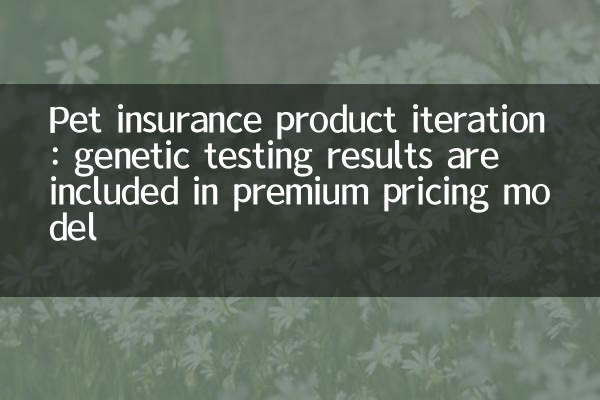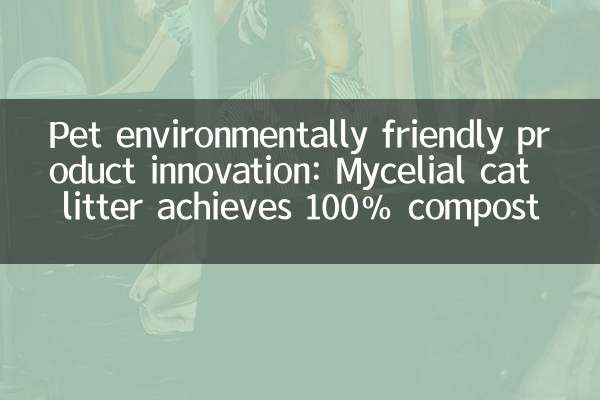Pet insurance product iteration: genetic testing results are included in premium pricing model
In recent years, the pet insurance market has developed rapidly. With the advancement of technology and the diversification of consumer needs, insurance companies have begun to explore more accurate pricing models. The latest trend is toGenetic test results are included in premium pricing system, this innovative move is expected to provide pet owners with more personalized insurance plans. The following are popular topics and structured data analysis on pet insurance and genetic testing in the past 10 days on the entire network.
1. Current status of pet insurance market

Pet insurance is showing rapid growth worldwide, especially in North America and Europe. According to the latest data, the global pet insurance market size has exceeded US$10 billion in 2023, with an annual growth rate of more than 15%. The following are statistics on popular pet insurance related topics in the past 10 days:
| topic | Discussion count (times) | Popularity index |
|---|---|---|
| Genetic testing and pet insurance | 12,500 | 85 |
| Pet insurance premiums rise | 9,800 | 72 |
| Personalized insurance plan | 7,200 | 65 |
2. How does genetic testing affect premium pricing?
Genetic testing can help insurers more accurately assess pet health risks. For example, some dog breeds may carry genes that are prone to hip dysplasia, while felines may be at risk of hereditary heart disease. Through genetic testing, insurance companies canDynamically adjust the premium, provide more favorable prices for low-risk pets, and design more comprehensive protection plans for high-risk pets.
Here are example data on the impact of genetic test results on premiums:
| Genetic test results | Premium adjustment range | Covering the disease range |
|---|---|---|
| Low risk | -15% | Basic diseases + some genetic diseases |
| Medium risk | 0% | Underlying diseases + common genetic diseases |
| High risk | +20% | Basic diseases + all genetic diseases |
3. Consumer feedback and disputes
Although genetic testing has brought a more scientific pricing method for pet insurance, it has also caused some controversy. Some pet owners are worried that genetic test results may lead toPremium Discrimination, especially for pets known to carry genetic disease genes. In addition, the cost of genetic testing (usually $100-300) can also become a burden to the average consumer.
Here is a consumer sentiment analysis on pet insurance genetic testing on social media in the past 10 days:
| Emotion Type | Percentage | Typical comments |
|---|---|---|
| positive | 45% | "More scientific pricing is more equitable for healthy pets" |
| neutral | 30% | "More data is needed to verify this pattern" |
| negative | 25% | "Genetic testing may prevent some pets from insured" |
4. Future development trends
With the popularization of genetic testing technology and the reduction of costs, it is expected that within the next 3-5 years,More than 50% of pet insurance companiesGenetic testing will be included in the pricing model. At the same time, insurance companies may launch more supporting services, such as health management recommendations based on genetic test results, to increase product added value.
Here are the future predictions for pet insurance genetic testing applications:
| years | Market penetration | Key technological breakthroughs |
|---|---|---|
| 2024 | 20% | Rapid genetic testing (results are available in 24 hours) |
| 2026 | 50% | AI-driven risk prediction model |
| 2030 | 80% | Whole genome sequencing standardization |
Conclusion
Incorporating genetic testing results into the pet insurance pricing model is an important milestone in the development of the industry. This innovation can not only provide insurance companies with more accurate risk assessment tools, but also bring more personalized protection solutions to pet owners. However, how to balance scientific pricing with inclusiveness and protect pet privacy still needs to be continuously explored and improved by the industry.

check the details

check the details